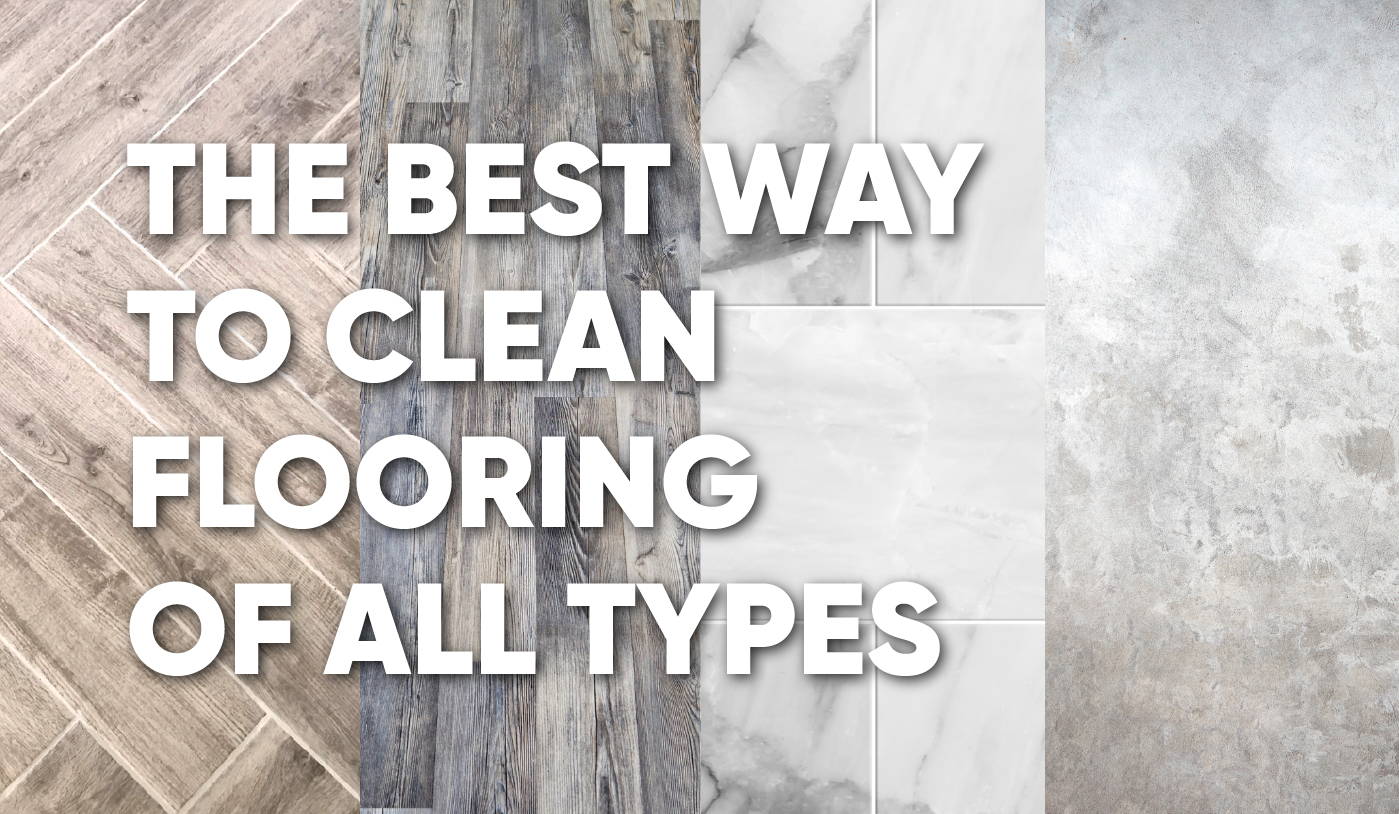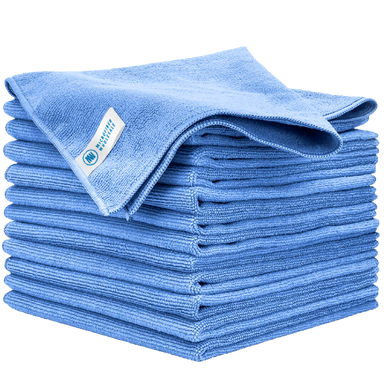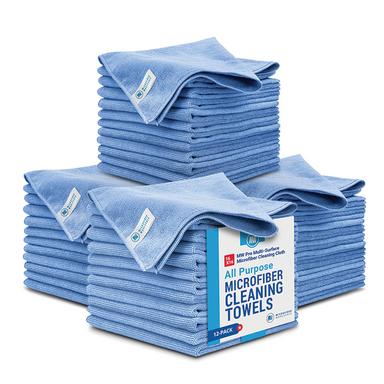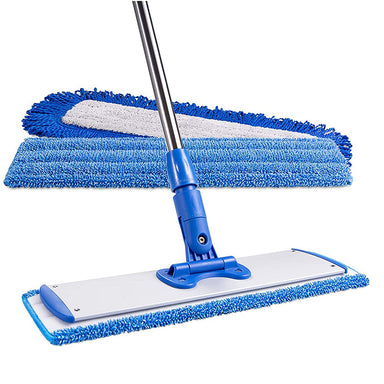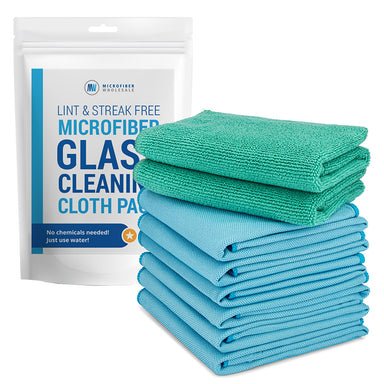Hardwood Flooring
Wood floors are some of the first floors people think of when it comes to delicate and hard to maintain flooring, and with good cause, as wood is very susceptible to water damage. Modern polyurethane finish is actually surprisingly water resistant and durable, especially in comparison to old fashion wax, so the wood is fairly safe so long as the finish is in good condition.
The risk with finished wood flooring comes from compromised finish, as any gaps in the floor planks or worn spots in the finish leave the exposed wood extremely vulnerable. Also wood finish is susceptible to dulling, scratching and softening from stronger acidic or alkaline floor cleaners.
Fun fact: while vinegar is thought of as a mild green cleaner, it is actually rather acidic and softens polyurethane floor finish.
For these combined reasons, the best choice for wood flooring is a flat microfiber mop with a neutral floor cleaner, as flat mops will make full contact yet allow for minimal water usage. Microfiber will hold onto more dirt and residue, thus leaving less streaks. Avoid string mops, sponge mops, or any mops that leave puddles of water, being careful not to leave puddles from banging into your mop bucket too, and dry up any water you accidentally splash quickly.
Laminate Flooring
Laminate flooring is one of the most deceptively fussy flooring types to maintain, as it's so commonly advertised as an easy flooring solution. While laminate flooring may be easy to install, depending on the quality purchased, keeping it looking good can be anything but easy.
Laminate floors are basically a resin or fiberboard base with a picture of a real wood or tile floor printed on a plastic sheet glued on top, with some more clear plastic sheets layered over the picture to protect it. As you can imagine, plastic isn’t exactly scratchproof and if the plastic doesn’t extend to the sides of the planks, the underside of the laminate flooring can be extremely susceptible to water damage from leaks through the seams.
While high-end laminates can correct this issue through using better base layers and plastic wrapped around all sides, at the end of the day, you as a professional cleaner have NO WAY to figure out how high or low quality the laminate flooring is by just looking at the top. For this reason, all laminate flooring has to be mopped as if it were the cheap stuff, which means you can only use neutral pH floor cleaner and a flat microfiber mop. Restrict water usage as much as possible, never leave puddles even for a short period of time, and avoid scrubbing as much as possible.
Stone Flooring
As you probably guessed, stone flooring, especially limestone family stones like marble and travertine, are the most delicate flooring material you can clean. While some stones like granite and slate are pretty tough, many scratch easily and can be damaged by strongly acidic or alkaline cleaners. Even if the stone itself is tough, the sealants used to keep the porous material from absorbing stains are definitely prone to damage from harsh chemicals and abrasives.
As your cleaners are not geologists, it's not fair to expect them to identify marble versus white granite, engineered versus natural stone, sealed stone versus honed bare stone, and so on, so the only fair thing to do for daily cleaning is to treat all stone as if it were unsealed marble.
For routine cleaning, this means using a flat microfiber mop and neutral pH floor cleaner, as these are the safest options on the market. If the floor is uneven like slate, you may need a textured mop like chenille flat mop pad or a microfiber tube mop to navigate the rocky terrain.
If the stone floor is in need of some TLC, there are excellent intensive stone floor cleaners on the market, some even focused on stone floor grout which is notorious for being hard to restore without damaging the stone.
Regardless of the products you choose, when it comes to stone cleaning remember no puddles, no abrasives, no scraping, and no harsh chemicals unless you’re a contractor there to polish and restore the floor (or want to end up paying for one because you trashed the floor!).








